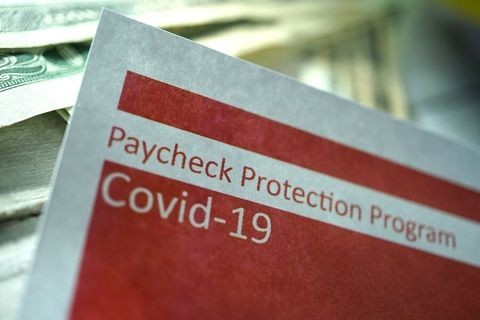Administrative Law – The Supreme Court and the President Rein in the ‘Administrative State’
Publication | 02.26.20
[Article PDF]
Key Points
|
 A conservative Supreme Court and administration have both been working to roll back the administrative state, shifting its center of power to the courts. The shift has been incremental, as demonstrated by two recent Supreme Court rulings and executive orders. Yet the impact on virtually every agency—and therefore every business subject to regulation—are already substantial. And the pace of change could rapidly increase in 2020 and beyond.
A conservative Supreme Court and administration have both been working to roll back the administrative state, shifting its center of power to the courts. The shift has been incremental, as demonstrated by two recent Supreme Court rulings and executive orders. Yet the impact on virtually every agency—and therefore every business subject to regulation—are already substantial. And the pace of change could rapidly increase in 2020 and beyond.
“These trends will make it easier for industry to challenge agency actions they don’t like,” says Amanda Shafer Berman, counsel in the Environment & Natural Resources and Litigation groups at Crowell & Moring and a former senior attorney in the Department of Justice’s Environmental Defense Section. “But it might make it harder for them to get what they want.” In other words, even as challenging agencies becomes easier, agencies could become slower and more cautious in ways that regulated businesses may find frustrating. Furthermore, the rollback in administrative power could ultimately result in greater regulatory uncertainty.
Narrowed Doctrines
Many Court observers had expected the Supreme Court to strike down the long-standing Auer deference, under which courts defer to an agency’s reasonable interpretation of its own regulations. In Kisor v. Wilkie, decided last June, the Court declined to do so, but it effectively narrowed the doctrine. Justice Elena Kagan wrote that the courts should not afford Auer deference unless, after exhausting “all the traditional tools of statutory construction” (such as an examination of context, consistency of the statute, and prior agency actions), they conclude the regulation is “genuinely ambiguous.” The court must also inquire as to whether the interpretation is an “authoritative” or “official” position based on expertise, rather than an ad hoc or novel position. In separate opinions, however, three conservative justices argued that the deference should be “retired.”
Kisor demonstrated the reluctance of some conservative justices to overturn long-standing precedent. But the ruling also revealed a clear divergence in liberal and conservative views of the role of judges, Berman says. The liberals contended that the judges “may not know the lay of the land” as well as agencies, so therefore they might not always come to the correct conclusion. The conservatives, by contrast, contended that interpretation is the specialized expertise of judges, “so of course they can come up with the ‘right’ answer. They don’t see the same ambiguity that would allow smart, reasonable people to come to differing conclusions, so they think the judge should decide, not the agency.”
In Gundy v. United States, the Court also honored precedent to preserve a long-standing doctrine—if only barely. The case tested the so-called non-delegation doctrine, under which courts uphold Congress’s right to delegate rulemaking authority to an agency as long as the courts can discern an “intelligible principle” from Congress that guides the agency’s actions. (Gundy had challenged Congress’s decision to delegate rules relating to the treatment of sex offenders to the attorney general.)
The non-delegation doctrine is long-dormant: The Court has only rarely invalidated federal statutes by arguing there was no “intelligible principle” behind Congress’s decision to delegate rulemaking to an agency. But three of the justices advocated abandoning the “intelligible principle” test, and the fourth said he would consider overturning the doctrine. Justice Brett Kavanaugh had not yet joined the Court when the ruling was handed down. Therefore, it’s probably only a matter of time before the doctrine is “completely rethought,” Berman predicts.
Congress routinely delegates rulemaking authority to agencies, and Justice Kagan warned that if the delegation discussed in Gundy “is unconstitutional, then most of government is unconstitutional.” But even if the doctrine were overturned, it is unlikely to result in many rulings overturning long-extant laws, Berman surmises. Judges will likely apply the non-delegation doctrine only in dramatic cases. In Gundy, for example, Justice Neil Gorsuch was incensed that the attorney general had been given “the power to write his own criminal code governing the lives of a half-million citizens.” It is rare that Congress gives an agency that much authority with so few constraints.
Reining In Regulations
Kisor is already shaping arguments in environmental cases, where “it’s giving additional fodder for folks who want to challenge agency determinations as going beyond what’s in the statute and regulations,” Berman says. “It’s easier to make arguments that an agency is overstepping its regulatory authority. A court that reflexively defers to the agency without any analysis of the regulatory or statutory language—which a fair number have done in the past—is more likely to get struck down on appeal.”

|
"A court that reflexively defers to the agency without any analysis of the regulatory or statutory language is more likely to get struck down on appeal." |
Agencies can still invoke Auer to defend their regulatory actions. But agencies that had been able to persuade courts to defer to their interpretations of vague regulatory text may instead be ordered to promulgate new rules through notice and comment rulemaking, Berman adds.
The Trump administration has also been ordering agencies to stick to the script. In October, President Trump signed two executive orders that aimed to limit agency “guidance.” Every federal agency issues guidance documents, variously called memorandums, circulars, bulletins, or letters, that expand on its regulations. These documents have sometimes been criticized as “stealth regulations” that allow agencies to effectively impose new requirements without submitting to rulemaking procedures.
The orders clarify that guidance documents are nonbinding “in both law and practice”; require agencies to rescind any unneeded guidance; require that all guidance be placed on a searchable website; and require agencies to seek public input when developing new, “significant” guidance.
These orders may help rein in what the Trump administration calls “rogue” agencies that put the threat of enforcement behind capricious directives. But guidance is often requested by businesses and individuals that need help understanding and complying with complex rules, Berman notes. Thanks to these orders, agencies may be slower or more reluctant to respond to these requests, which could increase uncertainty for regulated entities.
Could We See a Giant Leap?
The Supreme Court has been taking baby steps toward rolling back administrative power, but it could well take a giant leap over the next couple of years. The leap could happen if the Court loses a liberal justice while the Trump administration is in power. But it could also happen if the Democrats regain the presidency or both houses of Congress, Berman believes. A conservative Court could then feel compelled to reassert itself as a crucial check on the balance of power, reining in the executive and legislative branches as they attempt to make large-scale changes to environmental, health care, and other laws. In those circumstances, Chief Justice John Roberts—who of late has been a force for restraint, seeking to avoid decisions that might be viewed as political—could permanently rejoin the conservative wing of the Court. An emboldened Court might then reverse the non-delegation doctrine and possibly the Chevron doctrine, under which courts tend to give agencies deference on statutes they are administering. (Auer, by contrast, refers to an agency’s interpretations of its own regulations.)
A conservative Court that seeks to empower the presidency might also take measures to reduce the independence of federal agencies. This spring, the Court is scheduled to hear oral arguments on the constitutionality of the Consumer Financial Protection Bureau. If the justices rule that the president must have the power to remove the CFPB’s director in order for the agency to be lawfully composed, then that may have consequences for the fate of other so-called “independent” agencies such as the Federal Energy Regulatory Commission, the Federal Trade Commission, or the Securities and Exchange Commission, Berman says.
As the power and reach of the administrative state are pruned back, its relationship with industry is bound to change. The shape of that relationship is still being worked out.
Insights
Publication | 03.31.25
Health System Settles FCA Case Over PPP Loan 03.31.25 Report on Medicare Compliance
Publication | 03.24.25



